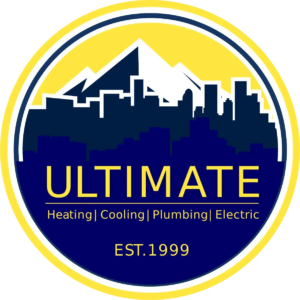Between January 2012 and December 2021, there were 98,282 single-family permits and 100,501 multifamily construction permits issued to Denver Metro Area home builders. According to Storage Cafe’s comprehensive study of U.S. Census Bureau data during this period, this makes Denver the nation’s tenth most active real estate market.
If you’re thinking of buying one of Denver’s new homes, or a previously owned one, make sure a technician conducts a full HVAC inspection before you seal the deal. Although home inspectors do a thorough job broadly examining a property for a prospective buyer, they’re not licensed HVAC specialists. Only basic checks are conducted on the HVAC setup, which means many HVAC issues are easily overlooked — leading to headaches later.
Here’s why you shouldn’t skip a full HVAC inspection before closing on a new Denver home or directly afterward.
Things a General Home Inspection Can Miss in Your HVAC
General home inspections in average-sized properties take two to five hours and are visual only, which means inspectors aren’t allowed to dig up yards or cut open walls. The inspection evaluates the following areas of a home:
Roof: Structural integrity and any attachments, such as satellite dishes or TV antennae. Skylights, gutters, shingles, and beams.
Environmental hazards: Evidence of asbestos, lead, or other materials harmful to health, as well as rodents, termites, and carbon monoxide leaks.
Plumbing: HVAC system, pipes, pumps, and drains.
Exterior: Garden, irrigation systems, swimming pools, wells, garages, and sheds.
Interior: Intruder and smoke alarm systems, appliances, overall appearance of the interior, doors, staircases, and fireplace ventilation.
Unfinished spaces: Basement, attic, ducts, and wall cavities.
Electric: Breakers, fuses, and service panels.
Given the broad nature of the general home inspection, the HVAC setup isn’t looked at in-depth. As a result, overlooking certain issues is easy, such as blocked flues or cracked ducts. Other HVAC problems that are frequently missed during general home inspections include:
• Cracked heat exchangers
• Gas and drain line leaks or clogs
• Exhaust venting issues
• Failing blower motor
• Ductwork defects
• Wiring faults
• Dirty air filters
• Improper refrigerant levels
The consequences of not rectifying the above problems include unexpected breakdowns or expensive replacement of parts or entire systems. According to HomeAdvisor, the national average for installing new HVAC equipment is $7,000, so taking good care of your existing setup is well worth it.
What’s Included in a Denver Home HVAC Inspection
HVAC technicians undertake inspections of a home’s heating and cooling equipment at a much greater depth compared to a general home inspector. A full HVAC inspection covers three areas and, in most cases, it takes a maximum of three hours. This is what’s checked:
Furnace Inspection
Furnace cabinet structural integrity and the connections of internal furnace components.
Furnace blower wheel efficiency and cleanliness.
Flue pipe and heat exchanger are free of holes or cracks, which ensures there’s no risk of a gas leak or carbon monoxide poisoning.
Thermostat internal wiring and operation.
Carbon monoxide (CO) detector functionality test. Over 400 people die in the US every year from CO poisoning. To learn more, read our blog explaining the signs, symptoms, and risks of CO poisoning.
Comprehensive evaluation of all electrical connections in the system, such as the flue exhaust pressure sensor and high limit switch, which prevent the furnace from overheating.
Furnace ignition operation and cleanliness.
Cooling System Inspection
Condensation line and condensate pump condition, connection tightness, and obstructions.
Outdoor condenser and blower fan efficiency, and fan motor condition. If faulty, the ability to generate cool air is significantly reduced.
Refrigerant levels. Low levels result in poor cooling or the unit freezing up.
Evaporator coil cleanliness and signs of coil icing or mold contamination.
Electrical wiring voltage and amp draws, connection tightness, and condition of motor capacitor. Wiring in poor condition is a fire hazard and risks moisture penetrating into enclosed spaces.
Drain pan water-tightness and signs of mold.
Air Flow Inspection
Duct external condition and signs of cracks or leaks.
Air temperature test of ducts in different areas of the home.
• Static pressure test.
• Obstructions inside ducts.
• Air duct size suitability.
• Vent, register, damper, and grille operation.
Once the full HVAC inspection is complete, you’ll receive a comprehensive report detailing the technician’s findings and the parts that were examined. Performance recommendations are provided too, as well as suggestions on repairs to improve the efficiency of your setup.
Why an HVAC Inspection Is Worth It for Your Denver Home?
A Denver HVAC inspection typically costs $200 to $500. It might be tempting to skip doing it, but an inspection can save you thousands of dollars down the line, as HVAC equipment is one of the most expensive appliances for homeowners to repair or replace.
Contact us today to arrange for one of our NATE-certified technicians to perform an HVAC inspection on your new Denver Metro Area home. For extra peace of mind, we also have three HVAC maintenance plans. Prices start at $125 per year and include an inspection of your HVAC setup, cleaning of essential components, and air filter replacement.


